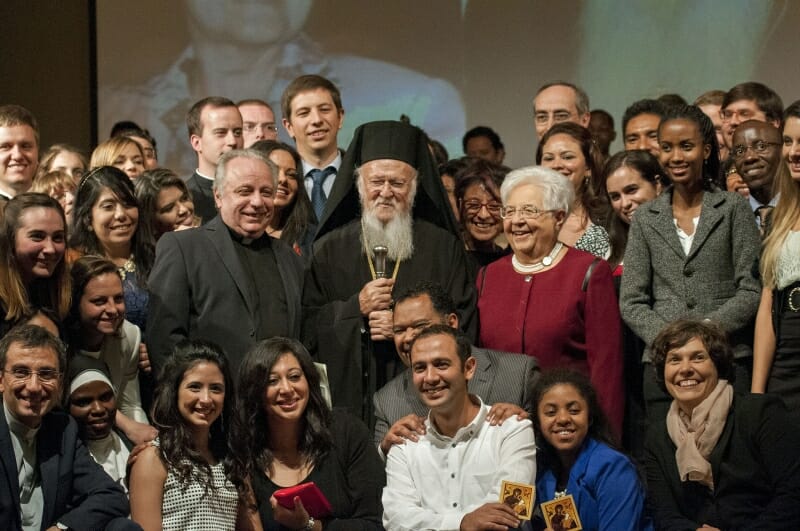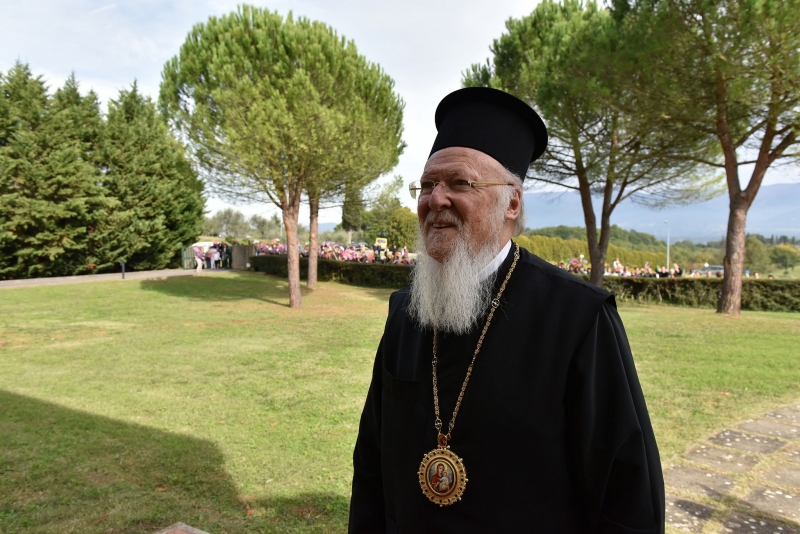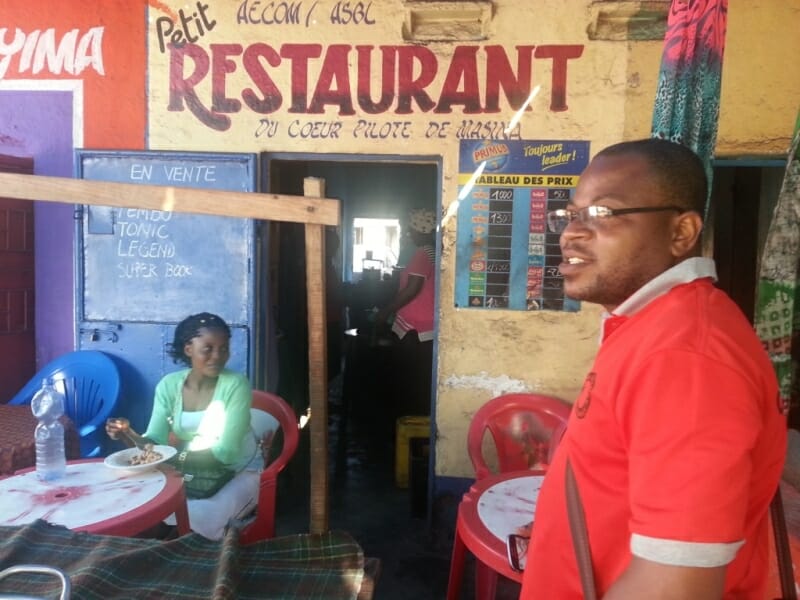

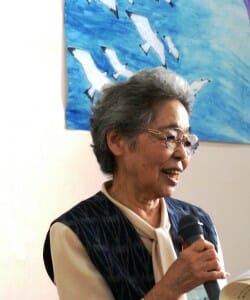
Japan, 70 years after the war
 “On August 22, 1944, I lost my only sister in the Tsushima Maru naval disaster.” The passenger ship was sunk by an American submarine. More than 1,400 civilians lost their lives, including 700 children. “Up until the day of her death at the age of 96, my mother continued to say: “The war ate her on me. . .” Mrs Toshiko Tsuhako spoke from the bottom of her heart as she recounted her story to us. Her city, on Okinawa Island, had been the theatre of the only land battle in Japan through the months of April, May and June 1945, leaving 150,000 dead. “I was just an innocent child when I found myself thrown into the tragic experience of war, in contact with painful wounds that it inflicts on the bodies and the spirits of people. The war ended when I was 12 years old. My mother had a fragile constitution and, since I was the only daughter now, I devoted all my strength to trying to support and alleviate her afflictions. At the age of 16 I met the Christian faith and received the grace of Baptism.” As an adult she came into contact with the Focolare spirituality: “I was quite surprised when I heard that the foundress, Chiara Lubich, had come to understand, in the midst of the Second World War, that God loves us immensely and that we are all brothers and sisters who aspire to a united world, because this coincided exactly with the great dream that I carried inside me from when I was a young teenager.” “Although I was aware that everything that happens is in God’s hands, countless times I would wonder: ‘Why are there still such cruel and painful wars?’, while I continued on dreaming of a ‘global Family’ where the people live mutual gratitude and communion.” “I think that God is in need of our collaboration in building a truly peaceful world. It is true that we should cultivate hearts that love their own lands, but more than anything we should cultivate sensitive souls that devote themselves to the good of others, souls that know how to love.” “On this anniversary of the termination of the war,” Toshiko testifies, “I renew my trust in God and my commitment to continue along the path of peacebuilding.”
“On August 22, 1944, I lost my only sister in the Tsushima Maru naval disaster.” The passenger ship was sunk by an American submarine. More than 1,400 civilians lost their lives, including 700 children. “Up until the day of her death at the age of 96, my mother continued to say: “The war ate her on me. . .” Mrs Toshiko Tsuhako spoke from the bottom of her heart as she recounted her story to us. Her city, on Okinawa Island, had been the theatre of the only land battle in Japan through the months of April, May and June 1945, leaving 150,000 dead. “I was just an innocent child when I found myself thrown into the tragic experience of war, in contact with painful wounds that it inflicts on the bodies and the spirits of people. The war ended when I was 12 years old. My mother had a fragile constitution and, since I was the only daughter now, I devoted all my strength to trying to support and alleviate her afflictions. At the age of 16 I met the Christian faith and received the grace of Baptism.” As an adult she came into contact with the Focolare spirituality: “I was quite surprised when I heard that the foundress, Chiara Lubich, had come to understand, in the midst of the Second World War, that God loves us immensely and that we are all brothers and sisters who aspire to a united world, because this coincided exactly with the great dream that I carried inside me from when I was a young teenager.” “Although I was aware that everything that happens is in God’s hands, countless times I would wonder: ‘Why are there still such cruel and painful wars?’, while I continued on dreaming of a ‘global Family’ where the people live mutual gratitude and communion.” “I think that God is in need of our collaboration in building a truly peaceful world. It is true that we should cultivate hearts that love their own lands, but more than anything we should cultivate sensitive souls that devote themselves to the good of others, souls that know how to love.” “On this anniversary of the termination of the war,” Toshiko testifies, “I renew my trust in God and my commitment to continue along the path of peacebuilding.”
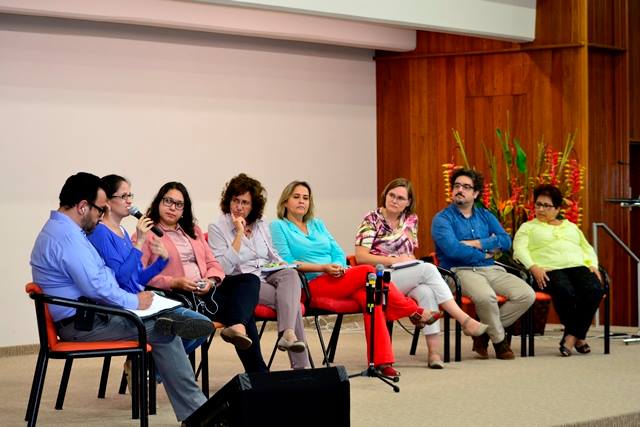
Inter-American Workshop on the Economy of Communion
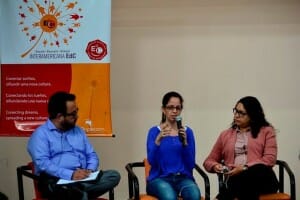 Connect dreams and spread a new culture was the title of an inter-American workshop by the Economy of Communion, which was held on October 26-31 at Mariapolis Ginetta, San Paolo, Brazil. Mariapolis Ginetta is the place where Chiara Lubich’s inspiration for the EoC was born in 1991. Sixty young people from Paraguay, Argentina, Mexico, Guatemala, Cuba, Colombia,, Bolivia and Brazil attended the even and have decided to embrace the EoC project and its innovative principles as they were first presented by the Focolare foundress. The business owners promised to accompany the young people on this difficult path. At the conclusion of the school every student received a certificate of participation from their partner. Thus a new form of communion was begun that has been called “Operation one for one”. Clézia Maria Pinto, head projects for Anpecom (the association that coordinates Economy of Communion projects in Brazil), announced the launching of a financial support programme for small businesses that operate in socially vulnerable situations, offering nutritional products or services in favour of educaiton health and housing, as well as to projects that focus on middle, low-income, and the neediest groups. The programme is inspired by projects that are already underway in other areas of the world, that offer funding and benefits linked to general adherence to the EoC.
Connect dreams and spread a new culture was the title of an inter-American workshop by the Economy of Communion, which was held on October 26-31 at Mariapolis Ginetta, San Paolo, Brazil. Mariapolis Ginetta is the place where Chiara Lubich’s inspiration for the EoC was born in 1991. Sixty young people from Paraguay, Argentina, Mexico, Guatemala, Cuba, Colombia,, Bolivia and Brazil attended the even and have decided to embrace the EoC project and its innovative principles as they were first presented by the Focolare foundress. The business owners promised to accompany the young people on this difficult path. At the conclusion of the school every student received a certificate of participation from their partner. Thus a new form of communion was begun that has been called “Operation one for one”. Clézia Maria Pinto, head projects for Anpecom (the association that coordinates Economy of Communion projects in Brazil), announced the launching of a financial support programme for small businesses that operate in socially vulnerable situations, offering nutritional products or services in favour of educaiton health and housing, as well as to projects that focus on middle, low-income, and the neediest groups. The programme is inspired by projects that are already underway in other areas of the world, that offer funding and benefits linked to general adherence to the EoC.  In the invitation, those who worked in preparing the workshop, wrote to their peers: “Let us not give up in front of social injustice and inequality” and posed a challenging question: “What if this change were to begin from becoming aware of what poverty, economy, work and interpersonal relations are?” These were only some of the topics that were presented during roundtable discussions, small group meetings where the main actors were the young people themselves and their expert business owners who had years of experience under their belts. In his final remarks, Anouk Grevin from the International Commission of the EoC admitted that there was the hope that the present workshop would function as a laboratory that would open new roads for the EoC not only in Latin America, but around the world.
In the invitation, those who worked in preparing the workshop, wrote to their peers: “Let us not give up in front of social injustice and inequality” and posed a challenging question: “What if this change were to begin from becoming aware of what poverty, economy, work and interpersonal relations are?” These were only some of the topics that were presented during roundtable discussions, small group meetings where the main actors were the young people themselves and their expert business owners who had years of experience under their belts. In his final remarks, Anouk Grevin from the International Commission of the EoC admitted that there was the hope that the present workshop would function as a laboratory that would open new roads for the EoC not only in Latin America, but around the world.
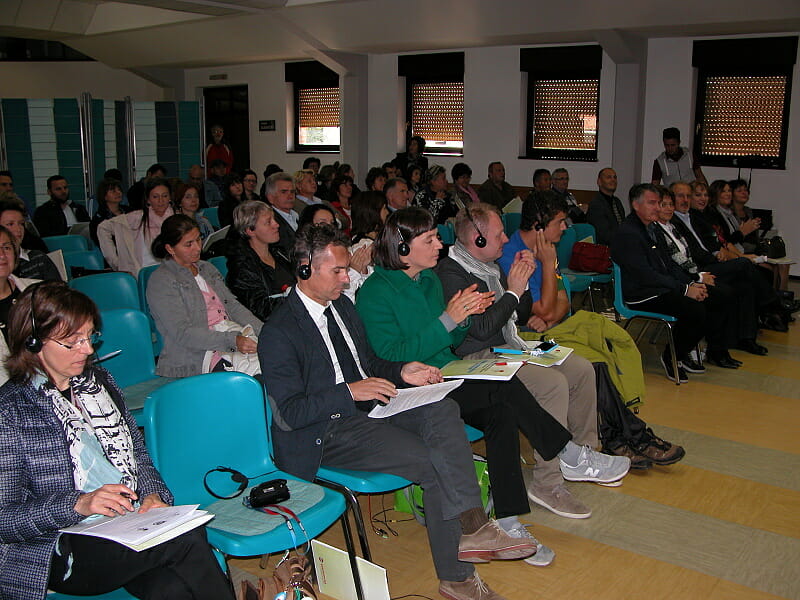
Sportmeet in the Balkans: When Sports Unites
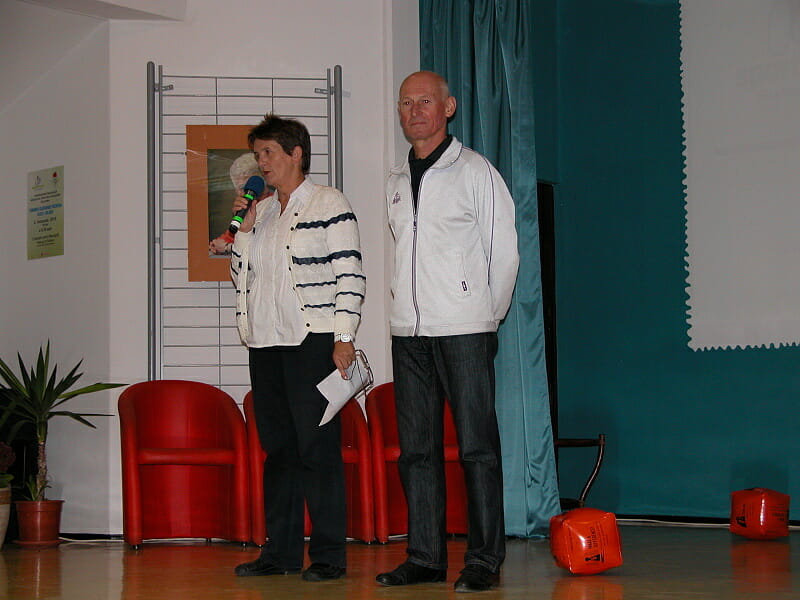 Can sports contribute to building a more united world? Could it become a field of action and a tool for unity among individuals and peoples? These were the queries that sparked up the experience of the founders of Sportmeet, motivated by the sharing of the common passion for sports. “Since we were not sure we had all the answers, we scouted out the people and experiences of the sports world that could help us, and through the years were able to establish, specifically three elements that trace the identity of Sportmeet: the high consideration for sports as an important aspect of society; the capacity and objective to unite the most diverse categories of people interested in sports; and the challenge to merge theory and practice in a framework which tends to separate the sports specialists from those who practice it.” These were some excerpts from the speech of Paolo Cipolli, President of Sportmeet for a United World, which opened the seventh convention organized by the Sportmeet network in Krizevci (Croatia). The intent was to consider sports in dialogue with contemporary society, with the conviction that it can give a specific, stimulating and positive contribution to culture and the construction of active and responsible citizenship.
Can sports contribute to building a more united world? Could it become a field of action and a tool for unity among individuals and peoples? These were the queries that sparked up the experience of the founders of Sportmeet, motivated by the sharing of the common passion for sports. “Since we were not sure we had all the answers, we scouted out the people and experiences of the sports world that could help us, and through the years were able to establish, specifically three elements that trace the identity of Sportmeet: the high consideration for sports as an important aspect of society; the capacity and objective to unite the most diverse categories of people interested in sports; and the challenge to merge theory and practice in a framework which tends to separate the sports specialists from those who practice it.” These were some excerpts from the speech of Paolo Cipolli, President of Sportmeet for a United World, which opened the seventh convention organized by the Sportmeet network in Krizevci (Croatia). The intent was to consider sports in dialogue with contemporary society, with the conviction that it can give a specific, stimulating and positive contribution to culture and the construction of active and responsible citizenship.  About a hundred participants – deans, teachers of movement control sciences schools, pedagogists, athletes, heads of sports clubs, referees, educators, university students, and sports journalists, most of whom did not declare any religious convictions – coming from various regions of Croatia and Serbia, turned up at the event held at the “Mariapolis Faro” in Croatia from 2 to 4 October. Also present were the local and regional institutions that sponsored the Convention, as well as the national TV channel, local radio, and athlete, Branko Zorko, half-marathon road running specialist and three times world Olympic champion in the 1500-metre race, a native of the place and who has been in contact with Sportmeet for some time now. The theme of the convention “Free time as a resource for the young generations,” which evidenced the great changes and risks deriving from the massive use of the internet and diffusion of new technologies, was clearly and passionately underlined by Mirna Andrijašević of the Faculty of Motor Sciences of Zagreb. Alexandar Ivanosky of the private Sports and Health Faculty of Belgrade (Serbia), underlined the importance of the presence of adults, and called all to face the challenge of seeking creative approaches together with the youth who are often alone in facing the powerful stimuli of technology and the social networks. Milan Čapalija, psychiatrist, and Majda Fajdetić, pedagogist of the Zagreb Ministry of Education, highlighted the various methodologies that promote pedagogic action in reassessing the importance of games and sports. Various interactive workshops ended with a game for boys and girls of the high school in the city’s charming main square. It was a testing ground and at the same time also an occasion to divulge the typical activities of Sportmeet which centres on dialogue as a resource and essential opportunity to promote a new sports culture. As a sign of the atmosphere of esteem and trust which has grown over the years, Alexandar Ivanosky (Serbia), underlined the capacity of Croatian sports athletes to excel in team sports and encouraged even greater stringent interaction to share the spirit of fraternity that drives this group in the Balkans and also in other parts of the world. The convention closed with the announcement of the next Summer School 2016 to be held in the same city of Krizevci from 14 to 17 July.
About a hundred participants – deans, teachers of movement control sciences schools, pedagogists, athletes, heads of sports clubs, referees, educators, university students, and sports journalists, most of whom did not declare any religious convictions – coming from various regions of Croatia and Serbia, turned up at the event held at the “Mariapolis Faro” in Croatia from 2 to 4 October. Also present were the local and regional institutions that sponsored the Convention, as well as the national TV channel, local radio, and athlete, Branko Zorko, half-marathon road running specialist and three times world Olympic champion in the 1500-metre race, a native of the place and who has been in contact with Sportmeet for some time now. The theme of the convention “Free time as a resource for the young generations,” which evidenced the great changes and risks deriving from the massive use of the internet and diffusion of new technologies, was clearly and passionately underlined by Mirna Andrijašević of the Faculty of Motor Sciences of Zagreb. Alexandar Ivanosky of the private Sports and Health Faculty of Belgrade (Serbia), underlined the importance of the presence of adults, and called all to face the challenge of seeking creative approaches together with the youth who are often alone in facing the powerful stimuli of technology and the social networks. Milan Čapalija, psychiatrist, and Majda Fajdetić, pedagogist of the Zagreb Ministry of Education, highlighted the various methodologies that promote pedagogic action in reassessing the importance of games and sports. Various interactive workshops ended with a game for boys and girls of the high school in the city’s charming main square. It was a testing ground and at the same time also an occasion to divulge the typical activities of Sportmeet which centres on dialogue as a resource and essential opportunity to promote a new sports culture. As a sign of the atmosphere of esteem and trust which has grown over the years, Alexandar Ivanosky (Serbia), underlined the capacity of Croatian sports athletes to excel in team sports and encouraged even greater stringent interaction to share the spirit of fraternity that drives this group in the Balkans and also in other parts of the world. The convention closed with the announcement of the next Summer School 2016 to be held in the same city of Krizevci from 14 to 17 July.
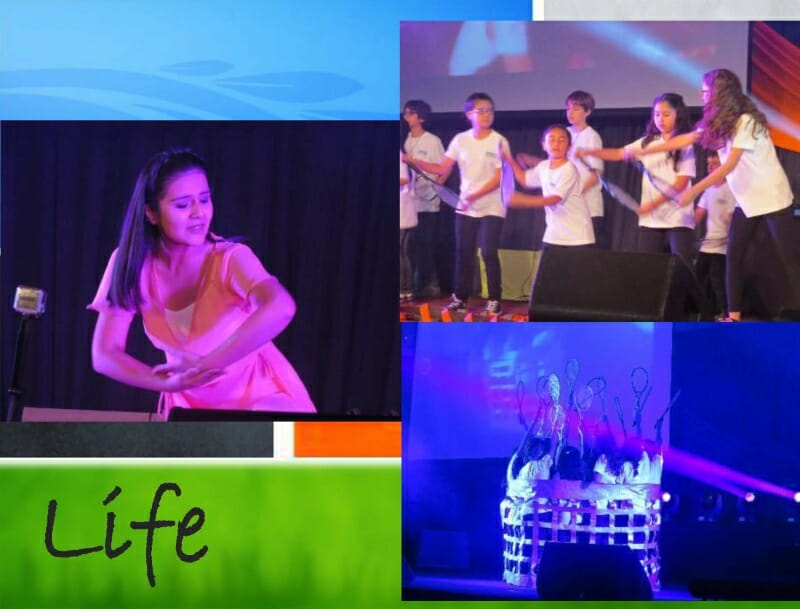
Chiara Luce: a luminous and modern day model
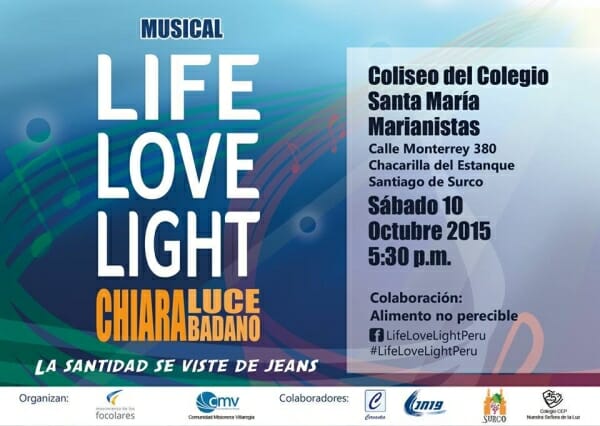 The musical, “Life, Love Light,” inspired by the life of Blessed Chiara Luce Badano, has arrived in Peru: on October 10th, just a few days after the 5th anniversary of the beatification of the young woman from Sassello, the show took the stage in Lima. Months ago, the Peruvian young people of the Focolare Movement had already contacted their Spanish peers, who had put on the same show in Burgos in their language, in order to obtain the materials. They were helped by the collaboration of the Community of Villaregia and the Misioneras Identes and several professionals – as they admit, “The show was beyond our capacities,” – who undertook the preparation of the musical.
The musical, “Life, Love Light,” inspired by the life of Blessed Chiara Luce Badano, has arrived in Peru: on October 10th, just a few days after the 5th anniversary of the beatification of the young woman from Sassello, the show took the stage in Lima. Months ago, the Peruvian young people of the Focolare Movement had already contacted their Spanish peers, who had put on the same show in Burgos in their language, in order to obtain the materials. They were helped by the collaboration of the Community of Villaregia and the Misioneras Identes and several professionals – as they admit, “The show was beyond our capacities,” – who undertook the preparation of the musical. 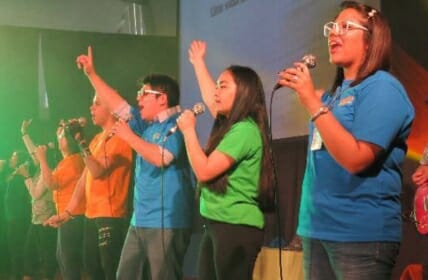 There were 75 young people who participated in the musical production, both from the Focolare and from other Movements who got involved. And one cannot overlook a series of “fortunate coincidences” in which the young people saw the hand of God’s Providence: from the availability of a hall which seats hundreds in a well-known section of Lima, to the meals brought for the whole team, thanks to the generosity of an adherent of the Movement, to the interviews released to two television stations – one of which taped the show for a pre-recorded broadcast.
There were 75 young people who participated in the musical production, both from the Focolare and from other Movements who got involved. And one cannot overlook a series of “fortunate coincidences” in which the young people saw the hand of God’s Providence: from the availability of a hall which seats hundreds in a well-known section of Lima, to the meals brought for the whole team, thanks to the generosity of an adherent of the Movement, to the interviews released to two television stations – one of which taped the show for a pre-recorded broadcast. 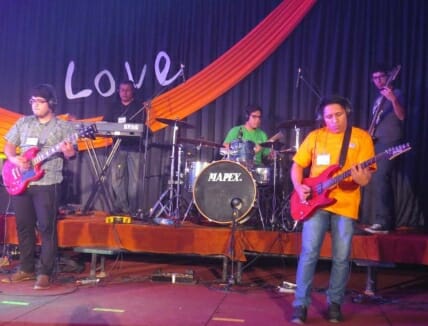 Even the 500 spectators did not hold back their generosity: while the admission was free, they responded to the appeal to donate dry or canned goods, which arrived in great quantities, to give to the needy people in the Community of Villaregia. The show was a great success in other ways, as the participants testified that it helped them to discover and value many hidden talents. A touching testimony was given by a mother of a 13-year-old girl affected by a serious form of depression, who said: “You have changed my daughter’s life.”
Even the 500 spectators did not hold back their generosity: while the admission was free, they responded to the appeal to donate dry or canned goods, which arrived in great quantities, to give to the needy people in the Community of Villaregia. The show was a great success in other ways, as the participants testified that it helped them to discover and value many hidden talents. A touching testimony was given by a mother of a 13-year-old girl affected by a serious form of depression, who said: “You have changed my daughter’s life.”  A message sent by Chiara Luce’s parents, Ruggero e Maria Teresa Badano, closed the evening, with their thanks for all that was achieved: “Her push towards sanctity and her faithfulness to the values of the Gospel of Jesus,” they wrote, “guided Chiara Luce even in the most difficult moments of her existence, and we are convinced that she will know how to inspire you. Because, as her spiritual mother Chiara Lubich said, ‘You have only one life, it’s worthwhile to live it well.’“
A message sent by Chiara Luce’s parents, Ruggero e Maria Teresa Badano, closed the evening, with their thanks for all that was achieved: “Her push towards sanctity and her faithfulness to the values of the Gospel of Jesus,” they wrote, “guided Chiara Luce even in the most difficult moments of her existence, and we are convinced that she will know how to inspire you. Because, as her spiritual mother Chiara Lubich said, ‘You have only one life, it’s worthwhile to live it well.’“
